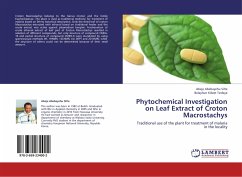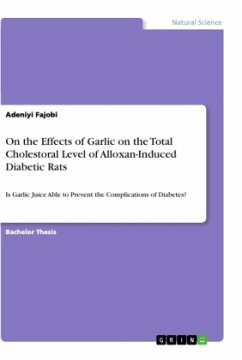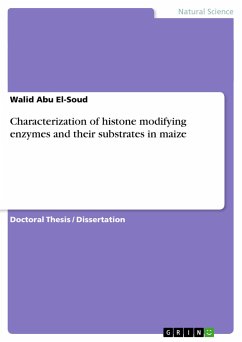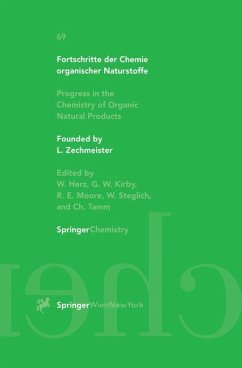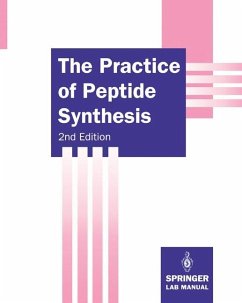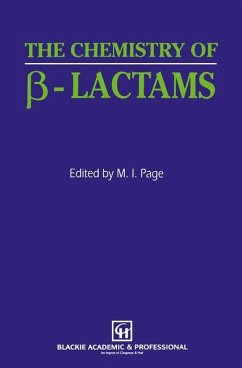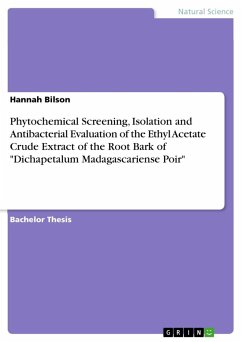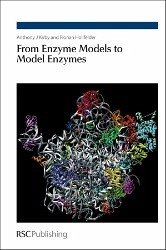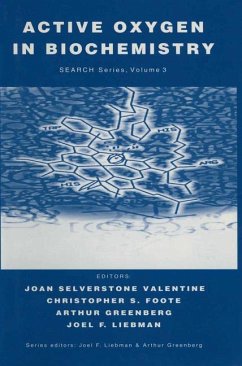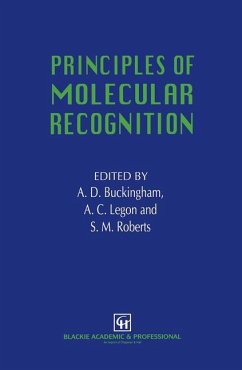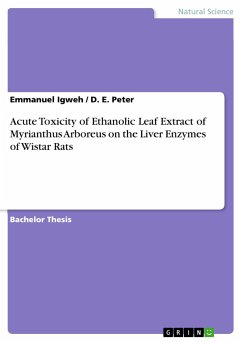
Acute Toxicity of Ethanolic Leaf Extract of Myrianthus Arboreus on the Liver Enzymes of Wistar Rats

PAYBACK Punkte
0 °P sammeln!
Bachelor Thesis from the year 2015 in the subject Chemistry - Bio-chemistry, grade: 3.84, , course: Biochemistry, language: English, abstract: The present study was done to evaluate the acute (14 days) toxicity of the ethanolic leaf extract of Myrianthus arboreus on the liver enzymes of wistar rats. In the acute (14 days) toxicity studies, 24 rats were grouped into 1- 8 groups (n=3rats/cage) and administered with 1500, 1000 and 500 mg/kg body weight for 7 days and 14 days. The rats were sacrificed after 7 days and 14 day of administration and blood samples and liver organ were collected for in...
Bachelor Thesis from the year 2015 in the subject Chemistry - Bio-chemistry, grade: 3.84, , course: Biochemistry, language: English, abstract: The present study was done to evaluate the acute (14 days) toxicity of the ethanolic leaf extract of Myrianthus arboreus on the liver enzymes of wistar rats. In the acute (14 days) toxicity studies, 24 rats were grouped into 1- 8 groups (n=3rats/cage) and administered with 1500, 1000 and 500 mg/kg body weight for 7 days and 14 days. The rats were sacrificed after 7 days and 14 day of administration and blood samples and liver organ were collected for investigations. The biochemical parameters such as the Alkaline phosphatase (ALP), Alanine transaminase (ALT) and Aspartate aminotransferase (AST) were determined and the liver histology analysed. The mean values of ALP showed significant increase (P 0.05), the ALT showed a non-significant increase (P 0.05) at groups 2, 3 and 4 and a significant increase (p 0.05) at groups 6, 7 and 8. The AST showed a non-significant increase (P 0.05) at all dosages and times except for group 2. The histological analysis showed microvesicular steatosis at groups 2 and 3 and a ballooning hepatic necrosis at group 7. The phytochemical analysis of Myrianthus arboreus shows the presence of alkaloids, flavonoids, tannins, anthraquinones, triterpenoids, carbonhydrate, cardenolide and saponins in detectable limits but fixed oils and cyanogenic glycosides were not determined. In this investigation, we can conclude that the ethanolic leaf extract of Myrianthus arboreus was unsafe at all doses considered for a period of 14 days. However, at a dose below 500 mg for 7 days could be considered safe.




